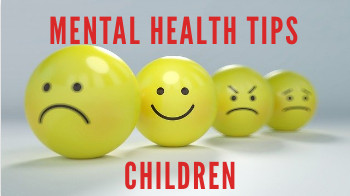
Ed News 2 Use

Emotional and Mental issues are On the Rise
February 3, 2022
Emotional and mental issues are on the rise since the origins of covid. It’s hard to pick up some news about children and not see articles about concerns for their mental health. Here are some things you can do to help children:
Children do not like change. Their world shifted when covid started. Suddenly people were wearing masks, places were shut, parents were sometimes homebound. Something you can do right now is have a consistent schedule, routine. Children thrive on structure. This will help them readjust to the new normal.
Be warm and loving. When children are troubled, they may act out. Young children cannot talk with their words, so they speak with their behaviors. Learn to see what the behaviors are telling you. The child may be saying, “I’m scared.” If that’s the case, this is a child that may need more reassurance.
Give them opportunities to express how they are feeling. For younger children, play games to teach them what they are feeling. Show them pictures of faces that are happy, angry, sad, worried, and scared. Ask them if they ever felt that way. Tell them times you felt that way. Young children love to do an Emotions Dance. Be the leader at first and have the children dance like they are happy, then sad, then angry, etc. The purpose of the game is to teach them an emotions vocabulary and to make it okay to have the feelings. It’s normal for all people young or old to have different emotions. For older children, give them opportunities to talk about what they are feeling. Start with a story of a time you felt angry and tell them what you did to feel better. Then invite them to tell you times they were angry, and what they did to feel better. Then discuss with them other options that might be more appropriate for expressing anger. For much older children like teens, be a good listener. Did you know that there are the same letters in the word, “silent,” as in the word, “listen?” That means that when you are listening one-to-one to the child, be silent. Let your body language speak for you showing the child you care what the child has to say.
Another very important thing to do to help children is to take care of yourself. Make sure you are not all stressed out. Eat right. Get enough sleep. These are busy times but be sure to take time to “fill up your gas tank.” A car can’t run one empty, and neither can you. Make time for yourself each day even if it’s only 30 minutes that is your “me” time. It’s a time you do something special for yourself. It might be to just sit alone quietly and read something inspiring. It might be to take a bubble bath. Whatever it is, make sure it is something you really enjoy that is just for you. People who work with children are always giving. That’s wonderful, but they often forget to take care of themselves too. Taking care of yourself is a gift you give to yourself and the children too because the more you take care of yourself, the better you can help and take care of others.
Carry on...
Maryln Appelbaum and Marty Appelbaum
